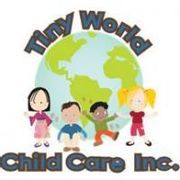5 Benefits of Teaching Your Child a Second Language

Many believe that learning a second language is only useful for travel and work, but bilingualism has a lot more to offer. Young children can especially benefit from the social, linguistic, educational, and cognitive skills gained from it. Through effective early childhood programs, you can broaden both your child’s horizons and academic prospects.
The Benefits of Teaching Children a Second Language
1. Boosts Academic Performance
If you want to ensure your child will be successful academically, place them in early childhood programs that teach a second language. Studies have shown that bilingual and multilingual students perform at a significantly higher level than monolingual students in math, reading, science, and standardized testing.
2. Increases Cultural Appreciation
When taught a foreign language at an early age, kids build a better appreciation toward the culture behind that language. Because they are able to share the language, understand cultural references, and possibly talk to native speakers, bilingual children can more easily develop empathy for the perspectives of others.
3. Gives Them a Head Start
 The earlier children learn a language, the more likely it will stick. Human brains develop at an extremely fast pace from birth to five years old, meaning your child is absorbing info at a higher rate than they will at any other age. Exposing kids to a second language as early as infancy allows them to gain deeper fluency than those who begin in high school.
The earlier children learn a language, the more likely it will stick. Human brains develop at an extremely fast pace from birth to five years old, meaning your child is absorbing info at a higher rate than they will at any other age. Exposing kids to a second language as early as infancy allows them to gain deeper fluency than those who begin in high school.
4. Opens Up Future Opportunities
Only knowing one language can be limiting in this cross-cultural world. Meanwhile, giving your child the gift of a second language opens countless doors for them. They’ll have broader career opportunities, an easier time with international travel, and the ability to make connections with different groups of people. This is a wonderful skill that can enhance your child’s life experiences.
5. Develops Cognitive Abilities
Language learning is not only beneficial for core academics, but for cognitive abilities as well. Research shows that bilingual students perform better with critical thinking, problem-solving, memory, multi-tasking, and perceptual performance tasks than monolingual students. Early childhood programs that teach an additional language will give your child neurological advantages that will last throughout their lifetime.
For a rich, multicultural education in Brookline, MA, enroll your child at Tiny World Child Care. Here they’ll learn the importance of compassion, teamwork, academics, and self-confidence in a nurturing environment. These child care experts prepare each young mind for excellence with a curriculum that emphasizes hands-on learning and bilingualism. Call (617) 232-0115 or visit them online to learn more about their early childhood programs.
About the Business
Have a question? Ask the experts!
Send your question

